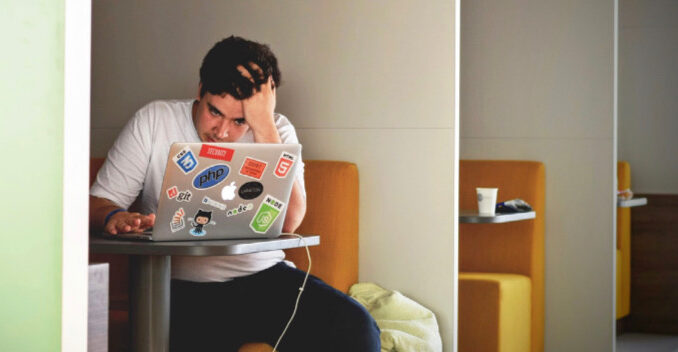
09/10/2020
Kellen Stepler | editori-in-chief
In a time where physical, social distancing is a must — where hybrid classes, bans on off-campus gather- ings and the option to take classes virtually are the new normal on the Bluff — mental health challenges at Duquesne have made this year differ- ent than ever before.
Recent research from the Centers for Disease Control and Prevention noted that one in four people aged 18-24 seriously contemplated suicide in June, in a study highlighting men- tal health, substance use and suicidal ideation during the pandemic.
So, Duquesne, like colleges nation- wide, is tasked with bracing mental health challenges along with meet- ing the social, emotional and mental health needs of students and staff. Ian Edwards, assistant vice president for student wellbeing and director of counseling services at Duquesne, said that counseling services is deliver- ing mental health services primarily through Zoom, utilizing a version of the program that is HIPAA-protect- ed. Counselors can see students face- to-face when needed, as the Center for Student Wellbeing has been com- pletely re-configured in accordance with CDC guidelines.
those who are self-isolating due to a positive or suspected COVID-19 diag- nosis,” Edwards said.
Virtual support groups — Meditation Practice for Challenging Times, The Village, Coniunctio, International Student Support Group Meeting and Support Group for Duquesne Students during these difficult times — are other outlets students can discuss issues.
Additionally, the Center for Stu- dent Wellbeing is developing a sup- port group for LGBTQ+ students that will soon be available.
Student clubs like Active Minds, the Wellbeing Club and the Stu- dent Health Advisory Council will be working to offer weekly meetings for interested students as well as University community peer educa- tion workshops.
“The Center for Student Wellbeing also will offer regular virtual outreach events, featuring psychoeducational workshops on topics such as stress management, mindfulness and more,” Edwards said. “The Center is also open to requests from groups of students who desire a workshop on a particular topic.”
Protests and racial disparities in this country have also been impacting students and their mental health. Quincy Stephenson, the assistant director and outreach coordinator for counseling services and facilitator of The Village, said that in reference to mental health, racial inequality has increased racial tension for many students at Duquesne.
“Constant exposure to racial in- equality occurring in 2020 has continued to present many students of color with increased racial stress,” Stephenson said. “Students have voiced anger and confusion concerning why racial injustice continues to happen over and over again. Many students are searching for opportunities to support and provide meaningful change.”
Adam Wasilko, assistant vice president of student involvement, said that resident assistants and community assistants have been en- couraged to do virtual programs so that students in isolation and quarantine can participate.
Wasilko also said that outdoor spaces are being utilized while maintaining social distancing so that larger groups can participate in some programs. Virtual TikTok dance tutorials, in-person and virtual paint nights and a pick-up pizza lottery are some programs that the Office of Residence Life has shifted to be safe and socially distant.
“The Duquesne Program Council has small grab-and-go events in the NiteSpot and prolonged programs outside on the weekends,” Wasilko said. “Freshman Development is hosting weekend online virtual events in which students can participate from any location.”
In a year like no other, Edwards said that a student wellbeing team was formed in April to address student concerns and issues, in response to the growing need to assist students in the wake of COVID-19. Duquesne has also created an emergency student assistance fund to help students dealing with the economic impact of COVID-19 and an interdepartmental solidarity group composed of students, staff and faculty was also developed to promote solidarity on Duquesne’s campus.
“Living during a global pandemic and time of social unrest can present you with many challenges,” Ed- wards said. “However, we believe that the vast majority of these challenges can also serve as opportunities for increased psychological and spiritual growth, as well as growth as a human community.”
Edwards compared Generation Z to the World War II generation. As the World War II generation was considered by many to be the “greatest generation,” today’s students are presented with an “opportunity to rise to the occasion.”
“Defy the doubters who might call you ‘selfish’ by becoming part of new ways of being and living that actively promote wellbeing for all and dedicate yourselves to the ongoing evolution of human consciousness,” Edwards said. “With each person you encounter, be a vehicle through which love, wisdom, and compassion is expressed.”
Students can call the Center for Student Wellbeing at 412-396- 6204 or visit their website at www. duq.edu/counseling for more in- formation on support services available on campus.

